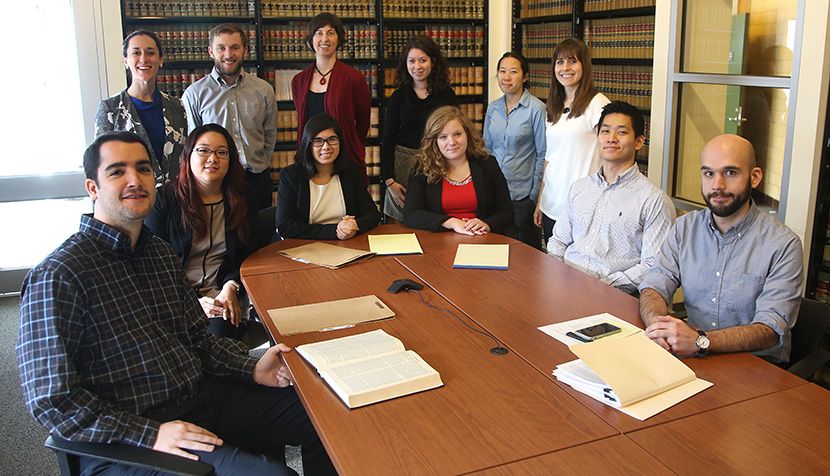University of Virginia law students will gain practical experience working on civil rights and racial justice cases through a new pro bono clinic, launched this semester.
The Civil Rights Litigation Pro Bono Clinic, a partnership between the UVA School of Law and Charlottesville’s Legal Aid Justice Center, received an $80,000 grant from the Jesse Ball duPont Fund. Students will work on civil rights cases involving topics found in many of today’s headlines, such as policing and race, criminalization of poverty and mental health.
The goal of the clinic is to bring cases that have potential to provide real and concrete relief to large groups of people who have been harmed by discrimination or deprivation of protected rights, organizers said.

“Securing funding like this makes it possible to provide a really rich and pedagogically challenging learning experience,” said Kimberly Emery, assistant dean for pro bono and public interest at UVA Law. “The Jesse Ball duPont Fund has always been incredibly generous. Since 1996, the fund has supported the development of eight pro bono clinics. So they’ve just been an incredible partner – we’re very lucky.”
Some of the pro bono clinics supported by the fund have become clinics offered for academic credit, including the Child Advocacy Clinic, the Family Alternative Dispute Resolution Clinic and the Health Law Clinic.
Students will be working directly with Legal Aid Justice Center’s new Civil Rights and Racial Justice Program, which will be led by attorney Adeola Ogunkeyede, who joins the office this month following a post at Bronx Defenders.
Nine law students volunteered pro bono at the Legal Aid Justice Center over winter break, working on cases that the clinic is designed to handle in the future.
First-year law student Michelle Chang said her work during the break helped solidify her passion for legal aid.
“This is what I want to do, and I’m actually researching on cases. I met a client. I’m really doing firsthand work,” Chang said. “This is why I came to law school. Right here, right now, I actually feel like I’m doing some good.”
The winter break group worked on four cases in active litigation and three others that are being investigated, said Legal Aid Justice Center Litigation Director Angela Ciolfi, a 2003 graduate of the UVA Law School who will co-direct the clinic with Ogunkeyede.
“We hope the students will come away with a deeper understanding of the role of race and poverty in American life and the role of lawyers in challenging all the policies and systems that perpetuate poverty,” Ciolfi said.
The center’s clinic coordinator, Amy Walters, a 2009 UVA Law graduate, worked with the volunteers during winter break and will also help supervise students who join the pro bono clinic.
“We’ve come to rely heavily on the students and their amazing work product, both throughout the semester with academic clinics, and then winter pro bono projects and summer projects to really help us serve more clients and do more extensive litigation and policy work that we couldn’t possibly do without their assistance,” Walters said. “Together we’re accomplishing much more than I ever expected to be able to do these past weeks.”
“It’s an important and unique opportunity for them, and we benefit so much,” said 2014 UVA Law alumnus Mario Salas, another Legal Aid Justice Center attorney who supervises volunteers. “Sometimes it takes a fresh perspective to give us new ideas. In some ways it’s a unique opportunity [for students] that I don’t think is available in any other context at the Law School.”
Among the cases slated for the group to tackle this semester is one involving a 9-year-old child who was seeking mental health treatment and ended up being shackled by police.
“This case is one specific fact pattern, but if we’re able to bring it successfully, then it has precedent for a variety of situations that would protect youth, and particularly youth with disabilities,” Walters said.
Media Contact
Article Information
February 10, 2017
/content/new-law-school-student-clinic-focus-civil-rights-racial-justice

